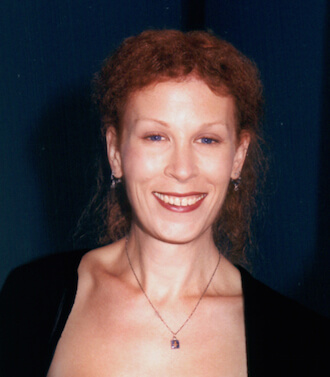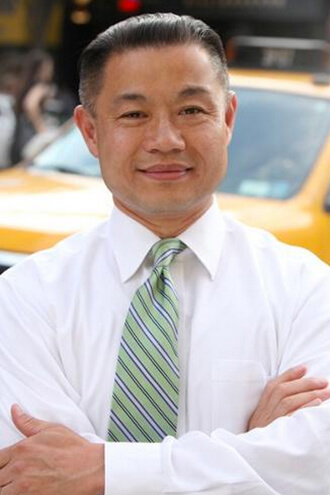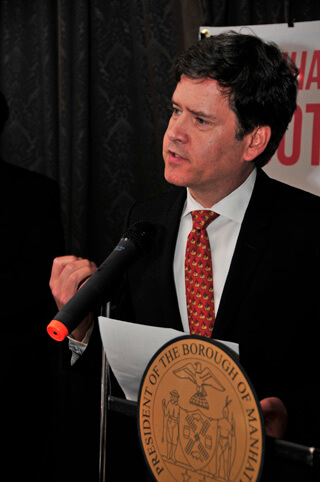A federal appeals court has decisively rejected a constitutional challenge to a New Jersey law prohibiting licensed therapists from performing “sexual orientation change efforts” (SOCE) –– sometimes called “conversion therapy” — on persons under 18. In a September 11 opinion from Circuit Judge D. Brooks Smith, appointed to the bench by President George W. Bush, a unanimous three-judge panel of the Third Circuit Court of Appeals in Philadelphia found the law does not violate the freedom of speech and free exercise of religion rights of therapists.
The measure, signed into law last year by Governor Chris Christie, bars any attempt, practiced on a minor, to “change a person’s sexual orientation, including, but not limited to, efforts to change behaviors, gender identity, or gender expressions, or to reduce or eliminate sexual or romantic attractions or feelings toward a person of the same gender.” It imposes no specific penalties, but may provide the basis for professional sanctions, loss of professional license, or financial liability toward people harmed by SOCE.
The law places no restrictions on licensed counselors publically expressing their views about such therapy; they are only prohibited from providing the actual therapy to minor patients.
Third Circuit rejects constitutional challenge to law forbidding SOCE efforts on youth
One of several lawsuits regarding SOCE pending in New Jersey, this case was brought by therapists and organizations supporting their right to provide such treatment. Another case was brought by some patients and their parents, while a third, pending in state court, was brought by patients whose parents signed them up for SOCE and who are seeking damages from the therapists under New Jersey’s consumer protection laws. In that case, the plaintiffs allege the practitioners fraudulently claimed to be able to change their sexual orientation and subjected them to therapy that caused mental and emotional harm.
The New Jersey law was modeled on a California statute that had also been unsuccessfully challenged by therapists. Last year, the Ninth Circuit Court of Appeals ruled the California law does not violate therapists’ First Amendment rights. Following the reasoning in that case, District Judge Freda Wolfson ruled similarly regarding the New Jersey law. The appeals court agreed with Wolfson’s conclusion, but adopted a different First Amendment analysis.
Like the Ninth Circuit, Wolfson concluded that the statute regulates conduct, not speech, and does not have enough of an “incidental effect” on speech to require the heightened judicial scrutiny appropriate in free speech cases. Wolfson looked to the government’s longstanding authority to regulate healthcare through professional licensing. She also rejected the therapists’ claim that the law violated their right to free exercise of religion, finding that it was a “neutral law” that never referred to religion or religious beliefs.
Judge Smith rejected Wolfson’s conclusion that the law only regulates conduct, since all parties agreed that “modern-day SOCE therapy, and that practiced by Plaintiffs in this case, is ‘talk therapy’ that is administered wholly through verbal communication.” Wolfson asserted that SOCE practitioners now reject the “aversion treatments” previously used –– including induced nausea and vomiting or paralysis and electric shocks –– as “unethical,” even though a recent consumer protection case in New Jersey detailed allegations that at least some therapists continue to use non-talk approaches.
Since the appeals panel concluded the law represents content-based regulation of speech, it applied a higher level of scrutiny in this case. Political speech enjoys the highest level of protection and cannot be restricted unless the government show a carefully-tailored rule designed to achieve a compelling interest –– usually involving national security or prevention of imminent criminal acts. Commercial speech, by contrast, can be restricted to advance important governmental interests, such as consumer protection or public health. “Professional speech” should be evaluated according to the same standard of “heightened scrutiny,” the panel found. Smith concluded that the Legislature’s findings, based on testimony and resolutions from reputable professional organizations, provided sufficient justification for the law to survive that standard.
The court cited professional groups including the American Psychological Association, the American Psychiatric Association, and the Pan American Health Organization as among those who “have publicly condemned the practice of SOCE, expressing serious concerns about its potential to inflict harm… including depression, anxiety, self-destructive behavior, and suicidality. Many such organizations have also concluded that there is no credible evidence that SOCE counseling is effective.”
Responding to the plaintiffs’ contention that there was not “conclusive empirical evidence regarding the effect of SOCE counseling on minors,” Smith found that the Legislature “is not constitutionally required to wait for conclusive scientific evidence before acting to protect its citizens from serious threats of harm.”
And finding that minors are an “especially vulnerable population” who might feel pressured to consent to SOCE by their families “despite fear of being harmed,” the court found the state could properly conclude that an “informed consent” approach to treating those under 18 was inadequate to avoid potential harm.
Regarding the religious freedom claim by the plaintiffs, the appeals panel agreed with Judge Wolfson that the law is neutral on its face regarding religion. There was no “covert targeting” of religion here, Smith wrote, even if many of the SOCE practitioners are religiously motivated in providing the therapy.
The plaintiffs’ appeal was argued by Matt Staver, dean of Liberty University Law School and a prominent anti-gay activist on behalf of Liberty Counsel. Susan M. Scott of the New Jersey attorney general’s office defended the statute, together with David S. Flugmann representing Garden State Equality in collaboration with the National Center for Lesbian Rights.
The plaintiffs have since indicated they will seek review by the Supreme Court. Given that the Third Circuit and the Ninth Circuit used different analyses to reach their free speech conclusions –– though both upheld state laws barring SOCE treatment of minors –– the high court might be persuaded that a national precedent would be appropriate.
Smith was joined on the Third Circuit panel by Judges Thomas Vanaskie, appointed by Barack Obama, and Dolores Sloviter, a Jimmy Carter appointee .


































